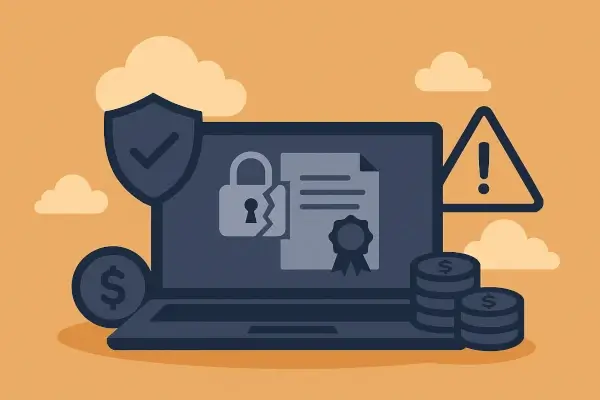
SSL certificates secure the digital backbone of businesses. They encrypt data, protect customer trust, and ensure compliance with strict regulations. Yet many companies still face the cost of ignoring expired SSL certificates every year. When a certificate expires, the consequences hit hard: websites go offline, users see security warnings, and revenues drop. Let's break down the risks, costs, and ways to prevent expired SSL certificates from damaging your business.
Key Takeaways
- Expired SSL certificates cause downtime, lost customer trust, and compliance issues worldwide.
- Financial losses and SEO penalties hit businesses when sites lose the HTTPS security signal.
- Data breach risks rise when expired certificates weaken encryption across AWS, Azure, and GCP.
- Automation tools like WebSitePulse SSL Monitoring prevent expirations and ensure global uptime.
Table of Contents:
What Happens When SSL Certificates Expire and Why Does It Matter?
What Are the Biggest Risks of Expired SSL Certificates for Businesses?
How Much Can Expired SSL Certificates Cost a Business?
How to Prevent SSL Certificate Expiration?
Which SSL Monitoring Tools Can Help Enterprises Stay Protected?
Conclusion
FAQ
What Happens When SSL Certificates Expire and Why Does It Matter?
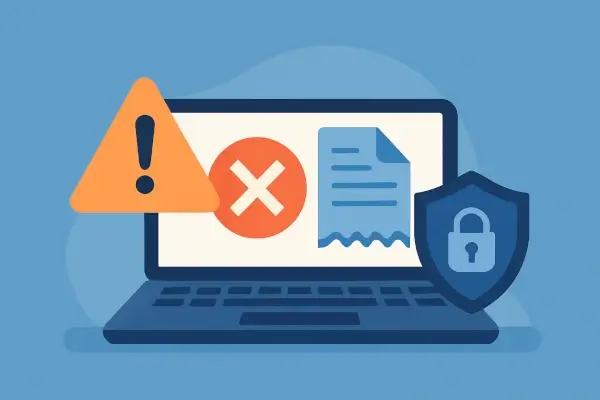
What Happens When SSL Certificates Expire
When an SSL certificate expires, browsers like Chrome, Firefox, and Edge immediately warn users with red security alerts. Visitors leave the site, transactions fail, and API connections break. For businesses, this leads to downtime, lost sales, and a damaged reputation.
Why SSL Certificates Expire and What It Means for Companies
SSL certificates come with a set validity period, often 90 days for Let's Encrypt and up to 13 months for commercial certificate authorities. Certificates expire to maintain security standards, reduce misuse, and force organizations to renew with stronger encryption. Ignoring renewals creates entry points for attackers and puts entire digital infrastructures at risk.
What Are the Biggest Risks of Expired SSL Certificates for Businesses?
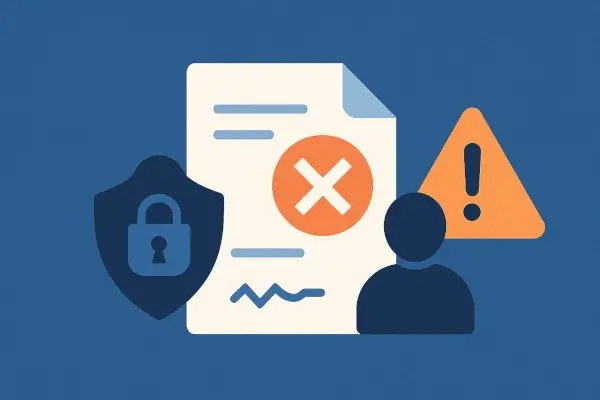
An expired certificate impacts every layer of a business. From e-commerce stores to financial apps, customers expect security. When that lock icon disappears, trust vanishes, and revenue follows.
What are the Security Implications of Ignoring SSL Certificate Renewals
Ignoring SSL renewals opens the door to man-in-the-middle attacks, data leaks, and compliance failures. Attackers can exploit expired certificates to impersonate websites or intercept sensitive data.
How Expired SSL Certificates Impact Customer Trust
Customer trust takes years to build but only seconds to lose. Seeing a "connection not secure" warning instantly pushes users away. Many will never return, assuming your business doesn't take security seriously.
How Much Can Expired SSL Certificates Cost a Business?
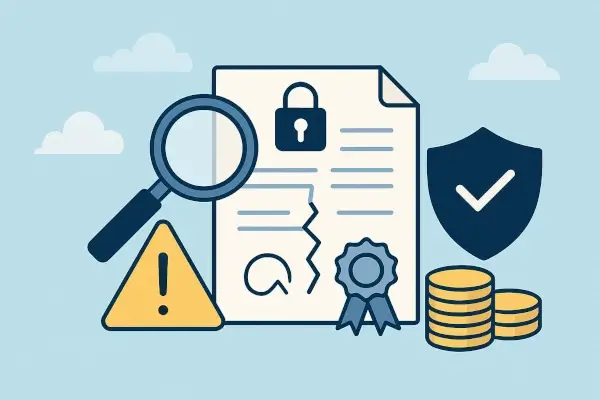
Financial Losses from Expired SSL Certificates
Outages caused by expired SSL certificates can cost companies thousands of dollars per hour in lost transactions, support costs, and customer refunds. High-traffic businesses face even steeper losses when downtime hits during peak seasons.
Compliance Violations Due to Expired SSL Certificates
Regulations like PCI DSS, HIPAA, and GDPR require secure encryption. An expired SSL certificate can trigger compliance violations, leading to fines, lawsuits, and reputational damage.
Downtime Costs Caused by Expired SSL Certificates
Every minute of downtime hurts. SaaS platforms, banks, and e-commerce sites risk losing subscriptions, halting services, and angering customers when SSL expirations shut down their systems.
SEO Ranking Penalties for Expired SSL Certificates
Search engines like Google penalize unsecured websites. An expired SSL certificate can tank rankings overnight, destroying organic traffic and increasing paid advertising costs to recover visibility.
Data Breach Risks from Expired SSL Certificates
Unsecured connections from expired certificates give cybercriminals a golden opportunity. Data breaches expose sensitive customer information, invite lawsuits, and result in millions of dollars in settlements and remediation costs for businesses.
How to Prevent SSL Certificate Expiration?

How to Avoid Expired SSL Certificates in Enterprises
The first step is visibility. Maintain an inventory of all certificates across internal systems, APIs, and customer-facing platforms. Without complete visibility, renewals slip through the cracks.
Preventing SSL Certificate Expirations with Automation
Manual renewals don't scale. Automation tools send expiration alerts, auto-renew certificates, and integrate with DevOps pipelines to prevent human error.
Step-by-Step Guide to SSL Certificate Monitoring
- Inventory all SSL certificates across AWS, Azure, and GCP.
- Set automated alerts for upcoming expirations.
- Validate certificate chains regularly with tools like Qualys SSL Labs.
- Automate renewals using AWS Certificate Manager, Azure Key Vault, or Google Cloud Certificate Manager.
- Centralize monitoring with dashboards for real-time visibility and insight.
How to Handle SSL Certificate Expiration Across Multiple Domains
Multi-domain environments complicate renewals. Enterprises should use wildcard certificates, centralized management platforms, and cloud-native tools to synchronize expiration dates across all domains and subdomains.
Which SSL Monitoring Tools Can Help Enterprises Stay Protected?
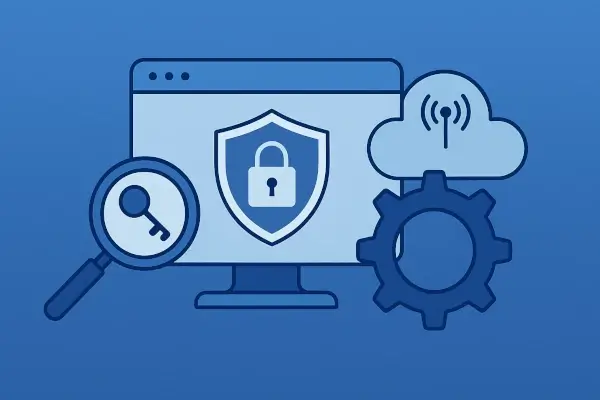
WebSitePulse SSL Certificate Monitoring offers automated checks, instant alerts, and certificate chain validation across global locations. By integrating with enterprise dashboards, it helps businesses avoid downtime, protect customer trust, and stay compliant with industry regulations.
Other tools like Nagios, Zabbix, and Qualys SSL Labs complement native solutions from AWS, Azure, and GCP, creating a full-stack monitoring strategy for enterprises.
Why Should Businesses Take SSL Certificate Monitoring Seriously?
The cost of ignoring expired SSL certificates goes far beyond a simple renewal fee. Businesses risk financial losses, compliance violations, security breaches, SEO penalties, and customer trust when certificates expire.
By combining automation, centralized monitoring, and proactive renewal strategies, companies protect themselves from costly downtime and reputational damage. Investing in SSL monitoring today prevents disasters tomorrow—and keeps your digital doors open 24/7.
Start Monitoring Your SSL Certificate Now!![]()
Frequently Asked Questions (FAQ)
Q1: What happens when an SSL certificate expires?
When an SSL certificate expires, browsers like Chrome and Firefox show security warnings. This leads to lost customer trust, failed transactions, and potential downtime for websites and apps worldwide.
Q2: Why are expired SSL certificates risky for businesses?
Expired SSL certificates expose businesses to cyberattacks, compliance violations under regulations like PCI DSS, HIPAA, and GDPR, and lost SEO rankings in search engines like Google and Bing.
Q3: How much can an expired SSL certificate cost a company?
Financial losses vary but often reach thousands of dollars per hour due to downtime, abandoned sales, data breaches, and regulatory penalties in multiple jurisdictions.
Q4: How can companies prevent SSL certificate expirations?
Businesses should use automation tools like WebSitePulse SSL Monitoring, AWS Certificate Manager, and Azure Key Vault to track, renew, and monitor certificates across all domains and regions.
Q5: Does an expired SSL certificate affect SEO rankings?
Yes. Search engines downgrade websites without a valid SSL certificate, reducing organic visibility and driving up marketing costs for businesses trying to recover traffic.
Q6: Which industries face the biggest risks from expired SSL certificates?
The finance, healthcare, e-commerce, SaaS, and government sectors face the highest risks due to stringent data security laws in the U.S., EU, and globally.
Q7: Can SSL certificate monitoring prevent data breaches?
Yes. Proactive monitoring detects upcoming expirations, weak encryption, and misconfigurations—helping companies secure sensitive data before breaches occur.


 Copyright 2000-2026, WebSitePulse. All rights reserved.
Copyright 2000-2026, WebSitePulse. All rights reserved.